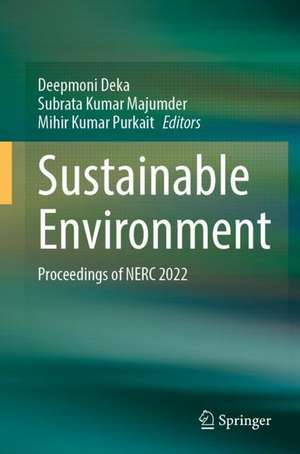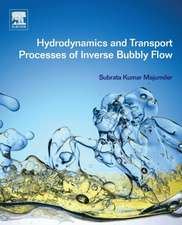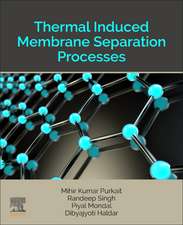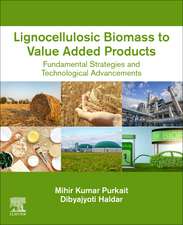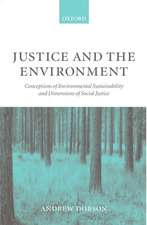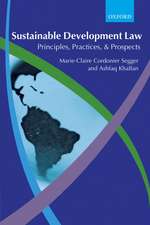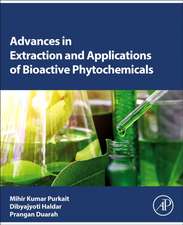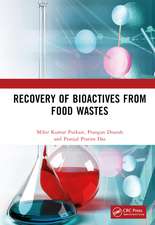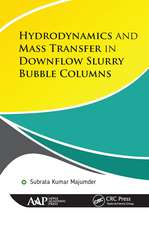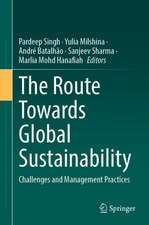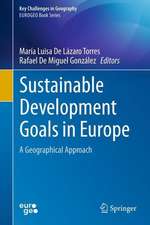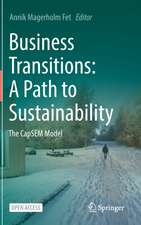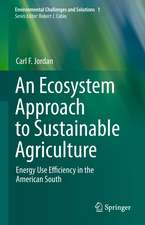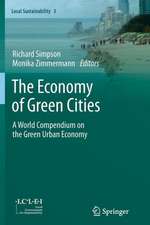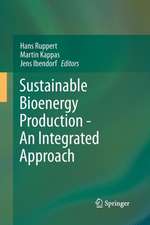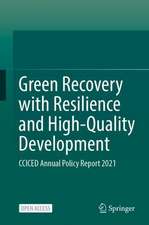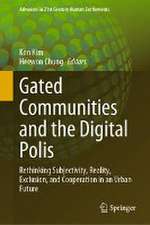Sustainable Environment: Proceedings of NERC 2022
Editat de Deepmoni Deka, Subrata Kumar Majumder, Mihir Kumar Purkaiten Limba Engleză Hardback – 15 mar 2023
| Toate formatele și edițiile | Preț | Express |
|---|---|---|
| Paperback (1) | 935.43 lei 38-44 zile | |
| Springer Nature Singapore – 16 mar 2024 | 935.43 lei 38-44 zile | |
| Hardback (1) | 952.59 lei 38-44 zile | |
| Springer Nature Singapore – 15 mar 2023 | 952.59 lei 38-44 zile |
Preț: 952.59 lei
Preț vechi: 1253.41 lei
-24% Nou
Puncte Express: 1429
Preț estimativ în valută:
182.27€ • 190.82$ • 150.82£
182.27€ • 190.82$ • 150.82£
Carte tipărită la comandă
Livrare economică 01-07 aprilie
Preluare comenzi: 021 569.72.76
Specificații
ISBN-13: 9789811984631
ISBN-10: 9811984638
Pagini: 288
Ilustrații: XXX, 288 p. 174 illus., 148 illus. in color.
Dimensiuni: 155 x 235 mm
Greutate: 0.7 kg
Ediția:2023
Editura: Springer Nature Singapore
Colecția Springer
Locul publicării:Singapore, Singapore
ISBN-10: 9811984638
Pagini: 288
Ilustrații: XXX, 288 p. 174 illus., 148 illus. in color.
Dimensiuni: 155 x 235 mm
Greutate: 0.7 kg
Ediția:2023
Editura: Springer Nature Singapore
Colecția Springer
Locul publicării:Singapore, Singapore
Notă biografică
Dr. Mihir Kumar Purkait is a Professor in the Department of Chemical Engineering at Indian Institute of Technology Guwahati (IITG). Prior to joining as faculty in IITG (2004), he has received his PhD and M. Tech in Chemical Engineering from Indian Institute of Technology, Kharagpur (IITKGP) after completing his B. Tech and B. Sc (Hons) in Chemistry from University of Calcutta. His current research activities are focused in four distinct areas viz. i) advanced separation technologies, ii) waste to energy, iii) smart materials for various applications and iv) process intensification. In each of the area, his goal is to synthesis stimuli responsive materials and to develop a more fundamental understanding of the factors governing the performance of the c^12,500, h-index = 64, 10 index = 150). He has authored 10 books in CRC press and Elsevier in last 5 years.
Dr. Subrata Kumar Majumder is a Professor in Chemical Engineering Department at Indian Institute of Technology Guwahati, India. He completed his Ph.D. in Chemical Engineering from Indian Institute of Technology Kharagpur. His research interests include Process Intensification in Chemical Processes, Intensification in environmental process system, Micro-nano bubble science and technology and its applications, Microchannel-based and Jet driven gas-aided extraction, Mineral Beneficiation, Enhanced Oil Recovery by Micro-nanobubble, Multiphase Flow and Reactor Development. He is a Life Fellow of Council of Engineering and Technology (India), Life Fellow of Indian Institute of Chemical Engineers and Fellow of the International Society for Research and Development, London. He is a recipient of various honours and awards like: Editor, Journal of Chemical Engineering Research Studies, Guest editor, American Journal of Fluid Dynamics, published by Scientific & Academic Publishing Co., USA, Editorial board member of Scientific Journal of Materials Science, IIME Award on beneficiation from Indian Institute of Mineral Engineers (IIME), Editorial board Member of the Journal of Science and Technology, Scientific and Academic Publishing, USA, Advisory board member of Excelling Tech Publishers (ETP), London, UK., life member of Indian Institute of Mineral Engineers, member of Institute of Engineers (India), Member of Asia-Pacific Chemical, Biological & Environmental Engineering Society (PCBEE), senior member of International Association of Engineers (IAE), Japan. He authored four books, five book chapters, has76 conference papers and has more than 100publications in several reputed international journals. He has completed several sponsored and consultancy projects. He has a collaboration with the Aalborg University, Denmark and University of Los Andes, Colombia, Curtin University, Australia, Edith Cowan University, Australia. Presently he is working in the field of Microbubble science and technology and its applications in mineral beneficiation, industrial effluent treatment, and arsenic, ammonia and dye removal and process intensifications in chemical and mineral processing.
Dr. Deepmoni Deka is working as Technical Officer Gr-I in Centre for the Environment at Indian Institute of Technology Guwahati, India. She completed her postgraduation in Molecular Biology and Biotechnology from Tezpur University and Ph.D. in Environment from Indian Institute of Technology Guwahati. Her research interests include bioremediation of environmental pollutants from soil and water, monitoring of ground and surface water quality, nutrient quality, determination of NPK content in soil, purification and characterization of industrial microbial enzymes, bioethanol production using waste biomass, resource recovery, waste valorization, biopolymer based hydrogel. She has 15 research publications in peer reviewed journals, 1 book chapter and more than 25 conference papers. Presently, she is working in the field of biobased plastic production using waste, wastewater treatment specifically pharmaceuticals, dye and heavy metal removal, biopolymer based hydrogel for sensing of pollutants and drugs.
Dr. Deepmoni Deka is working as Technical Officer Gr-I in Centre for the Environment at Indian Institute of Technology Guwahati, India. She completed her postgraduation in Molecular Biology and Biotechnology from Tezpur University and Ph.D. in Environment from Indian Institute of Technology Guwahati. Her research interests include bioremediation of environmental pollutants from soil and water, monitoring of ground and surface water quality, nutrient quality, determination of NPK content in soil, purification and characterization of industrial microbial enzymes, bioethanol production using waste biomass, resource recovery, waste valorization, biopolymer based hydrogel. She has 15 research publications in peer reviewed journals, 1 book chapter and more than 25 conference papers. Presently, she is working in the field of biobased plastic production using waste, wastewater treatment specifically pharmaceuticals, dye and heavy metal removal, biopolymer based hydrogel for sensing of pollutants and drugs.
Textul de pe ultima copertă
This book covers topics that addresses the global environmental issues, their challenges, and mitigation strategies for sustainable development. Some of the major challenges global environment is facing currently are global warming induced climate change because of which various extreme weather events such as flood, drought, cyclone, forest fires have increased. Industrialization with urbanization and human anthropogenic activities have caused detrimental effect on the environment resulting in environmental pollution (air and water pollution), deforestation, degradation of ecosystems, soil erosion, ground water depletion, drinking water scarcity, biodiversity loss, depletion of fossil fuels, etc. Therefore, it has become utmost necessary to switch to significant lifestyle stages along with conservation of natural resources for a sustainable environment. Sustainable environment may be defined as the practice of responsibly managing natural resources and protect overall ecosystem to support health and well-being of present and future generations. One of the major environment sustainability is the use of renewable sources of energy such as solar, wind, hydroelectric, and biomass which will reduce environmental pollution and also minimize resource misuse. At the same time, crop rotation, solid waste management, water treatment, wastewater treatment are some of the sustainable practices we must carry out for a sustainable environment. Hope, the content of the book gives an overview of recent developments, knowledge gaps related to new research areas related to environment and their future prospects.
Caracteristici
Presents selected peer-reviewed papers presented in NERC 2022 Enriches understanding by including contributions from policymakers, industrialist, and academicians Showcases the best R&D activities from all educational and research institutions
